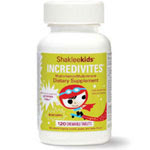As I've mentioned before, I am not a medical professional. In answering the coconut oil question, I will share some information I have gleaned from extensive reading. However, if after reading the material you don't come up with the same conclusions, follow your own assessment of the information rather than mine.
I'd like to start by looking at coconut oil with the Three Principles presented by Dr. Rex Russell in What the Bible Says About Healthy Living. By the way, I've got some fantastic news. (Thanks T!) A cookbook based on this book is soon to be released. I can't wait to get my hands on it! I'll post when it's available.
1. Eat What God Made: Natural foods are way beyond science's understanding. They contain properties that are just now being discovered... and some that we don't even know we need to discover yet! When we isolate a part of a food, as in soy protein isolate or fractionated coconut oil, we remove the nutritive properties that were placed with it for a good reason. Unfortunately, a lot of the studies on coconut oil have used a fractionated product.
2. Eat It As Close to How God Made It As Possible: When we use high heat in refining and processing, or when we add chemical solvents or end-product preservatives and deodorizers, we sometimes end up reconfiguring proteins, fatty acids and other nutrients. We destroy all together certain nutritional properties like enzymes and phytochemicals. Again, we need to look at the studies on coconut oil and separate out those conducted with highly refined, rancid and chemically laden products (which, sad to say, is most on the market). Please do stay away from all refined or hydrogenated coconut oils found in coffee creamers, candy coatings, confections and other highly processed foods.
3. Everything In Moderation: Even if we establish that coconut oil, cold-pressed and not chemically treated, is healthful, we must use it in moderation.
So what IS healthy about coconut oil?
There is a lot of information out there claiming that coconut oil has miraculous healing properties and can eliminate hypothyroidism, promote weight loss, and the list goes on. I do know that unrefined coconut oil has antimicrobial and antibacterial properties, but I can't support other healing claims since I don't see explicit evidence supporting them. However, I can describe briefly what a few components of coconut oil are and how they may effect your health.
Keep in mind, again, that I am only discussing possible benefits from cold-pressed, unrefined coconut oil. I don't see any benefits (only hazards) from the other stuff.
Surprisingly, coconut oil contains no cholesterol. Click here to see the USDA National Ingredient Database information.
A unique characteristic of coconut oil is that it contains what are called medium chain fatty acids, or medium chain triglycerides. Most other plant derived oils contain longer chain fatty acids, or triglycerides (LCTs). LCTs are typically stored in the body as fat, while MCTs are burned for energy. Interestingly enough, the average triglyceride level of the American population grew at an alarming rate as saturated fats fell out of favor and were replaced by refined vegetable oils.
Another beneficial component of coconut oil is lauric acid. The only other source of lauric acid is mother's milk. This particular fatty acid chain is what gives coconut oil it's antimicrobial and antiviral properties. As superbugs are becoming more prevalent, coconut oil is being singled out as a possible source for a viable solution.
But does coconut oil contribute to high cholesterol and thus to heart disease?
"Congress held hearings in 1988 to discuss the safety of tropical oils. Dr. George Blackburn, a Harvard medical researcher, testified that coconut oil has a neutral effect on blood cholesterol, even in situations where coconut oil is the sole source of fat. Surgeon General C. Everett Koop dismissed the entire attacks on coconut oil as “Foolishness,” and continued to say “but to get the word to commercial interests terrorizing the public about nothing is another matter.”" Brian Shilhavy.
Just as I believe it is important to seek peer-reviewed, published scientific studies to prove claims made by supplement companies, those of you who want to read more technical information on this subject will want to take a look at this list of peer-reviewed studies on coconut oil. For any of you who feel like a bit of science jargon today, you can read some thought-provoking coconut oil information (including thoughts as to why coconut oil has received such criticism) here, here and here.
So, without running the risk of turning this email question into a mini-thesis, I'll just make one more recommendation: If you would like to read further about how fats impact your health, I recommend Know Your Fats: The Complete Primer for Understanding the Nutrition of Fats, Oils and Cholesterol by Mary Enig.









































4 comments:
Interesting post. I have been considering using coconut oil, but didn't know much about it. Thanks for all the good information.
Toni
http://thehappyhousewife.com
I have been using coconut oil for a couple years now and love its many uses. I can't give "professional" advice on it, but what I have experienced, so here goes:
1. we use it as a pre-wash hair conditioner. Makes the hair soft as silk.
2. Our dog loves it. Her coat is so shiny and soft.
3. we use it for lotion (topical), again soft skin.
4. whenever one of my boys (6 and 8) gets hurt, they run for the coconut oil. It doesn't burn going on and the wound seems to heal nicely and quickly. Now, this one I'd like to share another experience. My pastor was battling sarcoma (cancer). He was unable to get out of bed and had sores that wouldn't heal no matter what the nurses did. Once he was home, we asked the homecare nurse to try coconut oil. She did and was amazed that within days the wound was disappearing.
5. We also use it on sunburns for the same reasons. The skin then doesn't dry out like it tends to when it begins healing and the peeling is minimized.
We do use it for cooking on occasion because of its cholesterol content and it handles heat well. However for making fries or pie crust we use palm shortening.
On a side note, the coconut oil we use is Extra Virgin Coconut Oil--not heated. (some expeller pressed.) we do use also coconut cream concentrate when making smoothies. It really adds to the flavor nicely.
What is "coconut cream concentrate"? Can I take cold pressed, extra virgin Coconut Oil and make the coconut cream concentrate from that?
I have the Nutiva brand of coconut oil.
Hi WiJoyMom,
From what I understand, coconut cream concentrate is actual coconut meat dessicated and concentrated. It is not an oil product. So, from what I understant, you could not get coconut cream from the oil... it just wouldn't have the coconut meat in it.
Does that help?
AE
Post a Comment